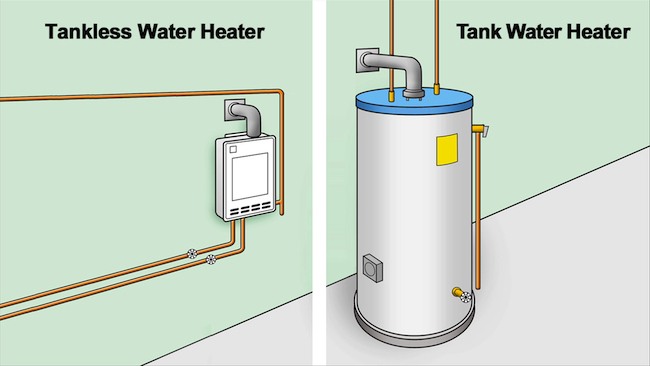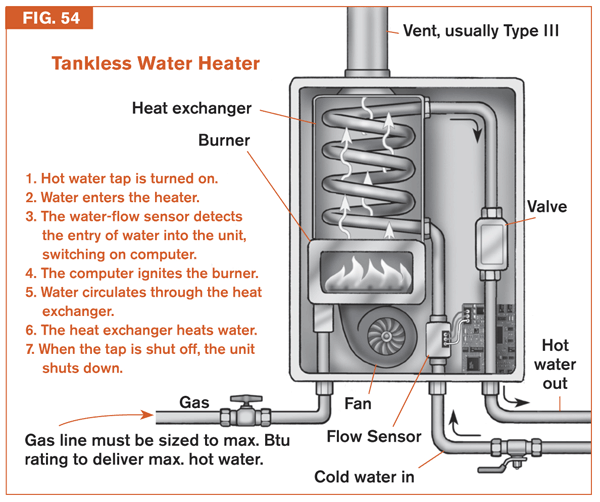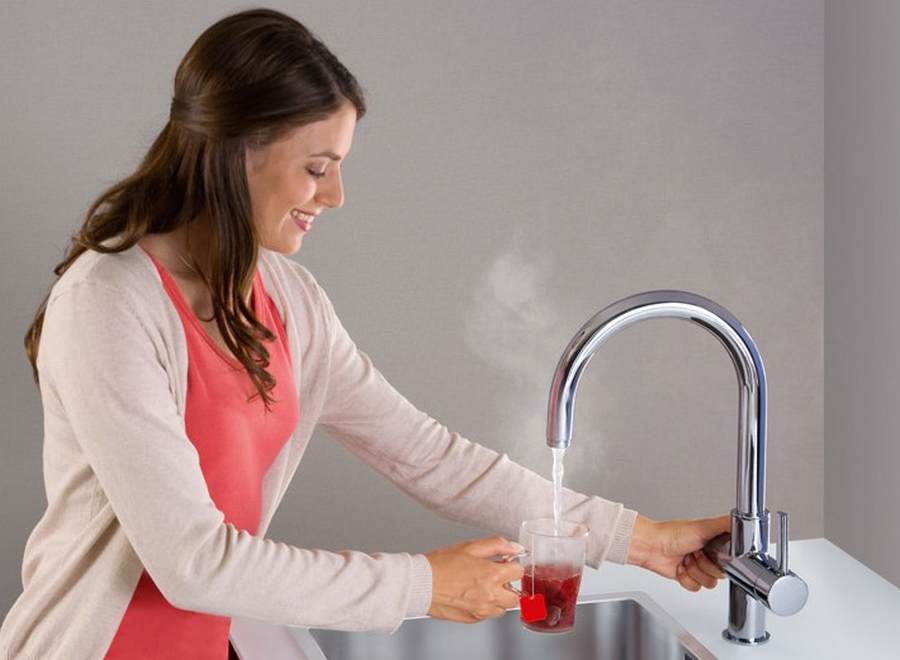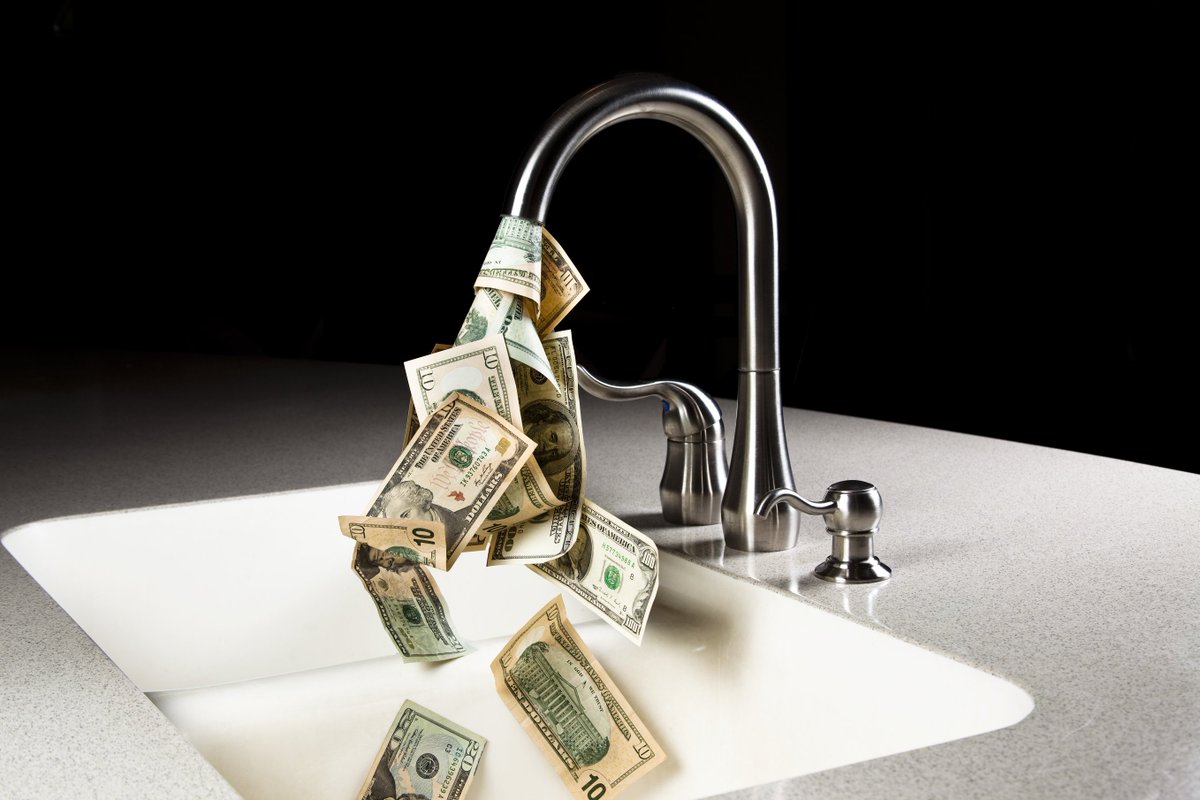Did you know that nearly 20% of the average utility bills are spent on your water heating system?
This makes heating water the second highest energy expense in the home, and certainly and easy place to save some money.
With the cost of water on the rise as talk of conservation continues, the rates for water are going up steadily. It’s important to save water when and where we can — which is where tankless water heaters enter the picture.
 Some Perspective:
Some Perspective:
Did you know that every time you wash a load of clothing in the washing machine, it consumes 7 gallons of water on average?
Your average shower consumes, even more, coming in at 10 gallons of water used for one shower!
Dishwashers use almost as much as the washing machine averaging six gallons per load.
If you think that is a lot, did you know that two gallons per minute are used when you have the hot water running from a kitchen faucet? Just think about how long it takes to do the dishes by hand.
The bathroom faucet averages only a ½ gallon of water per minute, but even that is a lot.
The statistics show every household consumes an average of 64 gallons of water every day.
That is a lot of water!
Going Tankless
Going tankless might seem like a tedious thing to do. Many people share the mindset that if it isn’t broken, let’s not fix it.
However, it is important to look at the bigger picture, and the ways that are going switching to a tankless water heater might save you significant amounts of money in the long run.
Conventional water heater
A conventional water heater has a lifespan of about 8-10 years. This means that on average you will be purchasing a new water heater every 8-10 years, assuming that nothing goes awry during that time.
Conventional water heaters also recommend that they are regularly serviced by a plumber at least once every six months. So this means over the lifetime of the water heater, it is recommended that you call a plumber nearly twenty times for service.
Tankless water heater
A tankless water heater has an average lifespan of about 25-30 years, which is close to three times that of the regular water heater.
They also don’t require the regular servicing that the conventional water heater does as there is no “tank” to maintain on a daily basis.
Speed:
The biggest difference between a tankless water heater and a conventional water heater is the way and the speed of heating up the water.
Essentially, with a tankless water heater, you have hot water on demand whenever you need it. When you turn the faucet or the shower on, there is no waiting period for the water to warm up before you start using it.
Conversely, the conventional water heater may take several minutes to heat up to the desired temperature once the water starts running which is wasting valuable water and also increasing the overall bill and usage.
Supply:
Another thing to consider is that with a conventional water heater your hot water supply is usually limited to the number of gallons that the tank will hold.
Once the hot water has been used or “runs out,” it may take several minutes for another tank of water to be heated.
Conversely, with the tankless water heater, the supply of hot water is unlimited.
As there is no tank size to be concerned with, there is also not a limit on the amount of water that can be heated and then distributed during any certain period.
Efficiency:
Did you know that the water in your hot water tank is always hot?
That means that your hot water tank is constantly using energy to keep water hot regardless of if you are using it or not. This is a huge contributing factor to the above mentioned 20% of the utility bill.
With a tankless water heater, water is only heated as needed, and as such it saves valuable energy and reduces utility costs.
Homeowners using tankless water heaters have experienced significant reductions in their utility bill, up to 34%, as a result of switching the more efficient tankless option.
Cost:
So it is true that the tankless water heater is significantly more expensive to purchase as it comes to upfront costs. And often, this is the factor that dissuades people from switching.
As aforementioned, it is the bigger picture savings that we are looking at for this to be an efficient upgrade to your home.
When you consider that you will have to replace the water heater three times in the same timeframe that one tankless system will last, it doesn’t seem so pricey.
Additionally, when you factor in the money that you will spend to maintain the conventional system by calling out a plumber 15-20 times during the lifespan of each of those three water heaters, you should factor in the cost of just calling a plumber 50-60 times.
Savings will be immediate on the utility bills once the system is installed, but the upfront costs are slightly higher for the system itself.
Conclusion:
Overall, the tankless system is a great solution for someone who plans to keep their home for a significant period because they will be there twenty or thirty years down the line to feel the effects of the overall savings by investing upfront in a slightly more expensive system.
A homeowner who is merely looking to flip the property and make upgrades or improvements with as little upfront costs as possible, because they won’t be around or own the property down the line to feel the effects of the long-term savings. It may be better off by investing in the conventional system, though the tankless water heater does add value to the home.

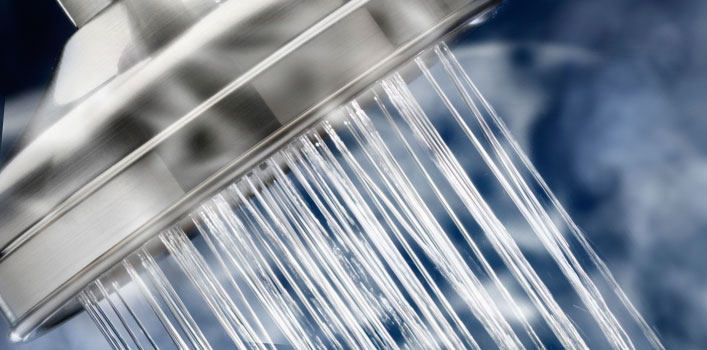 Some Perspective:
Some Perspective: